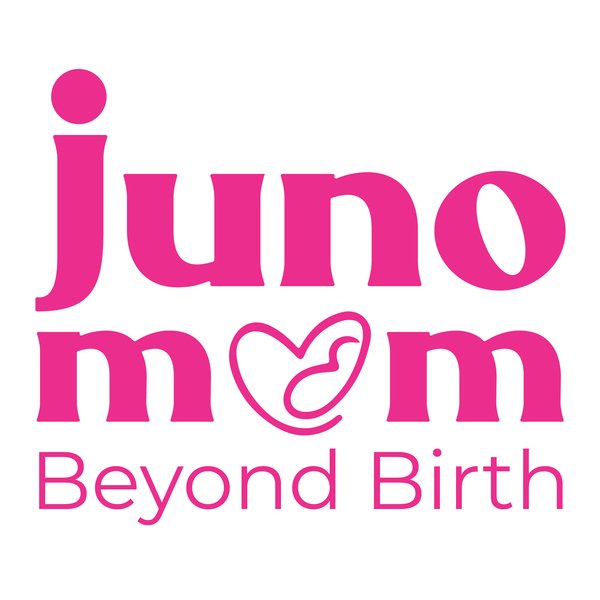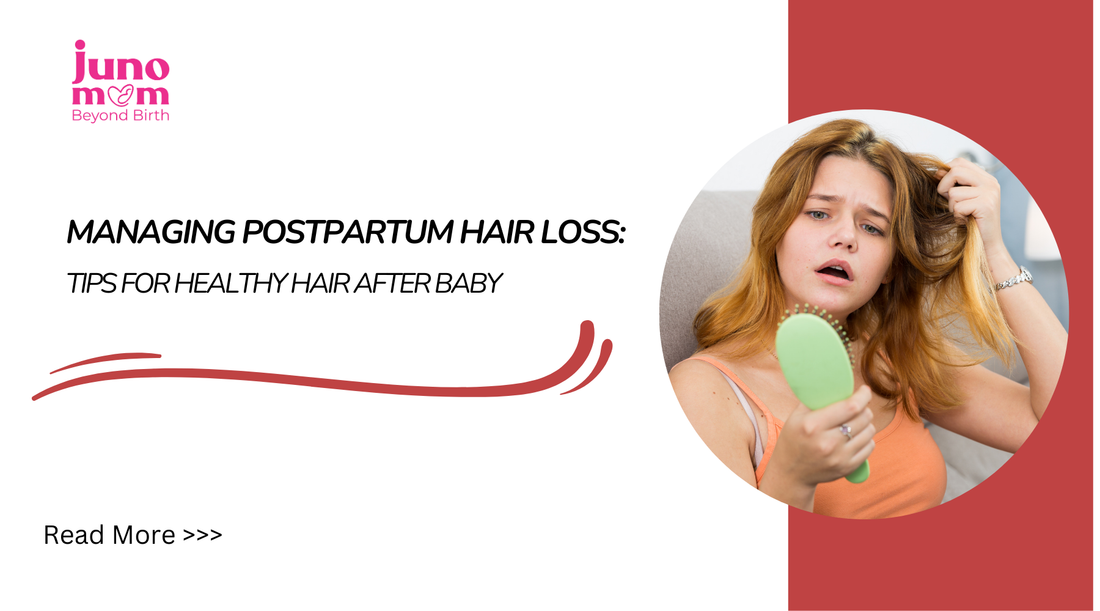What everyone says is that it’s common to go through postpartum hair fall, but no one tells you why! How can we maintain the hair care routine? No one has actually addressed the intensity of this issue.
The Juno Mom is all about talking, listening, expressing, and educating the moms about various pregnancy related facts. You must know the real facts and how to manage them easily. One of the essential facts is “Postpartum Hair Loss”.
Usually women tend to avoid various changes that happen in their body and put all their focus on the baby's well-being. One of the major issues is hair loss which is not something like a regular one. Normally, 100 strands a day is like a basic hair loss which happens throughout and seems to be acceptable. But during pregnancy, some changes may seem daunting.
Why Does Postpartum Hair Loss Happen?
During pregnancy you might have experienced longer, lustrous hair than normal, and after giving birth all the shine and luster starts going into the drain when you go through excessive hair fall. Ever wondered why these two sudden changes happen to your body but in different phases?

Hair loss is one of the most common side-effects of childbirth and up to 92% of women lose a noticeable amount of hair. During pregnancy, there is a lot of hormonal shifting which promotes hair growth. The high level of estrogen helps in preventing hair fall. After childbirth these hormones get to rest, the estrogen level drops low which causes hair shedding to resume. All the extra hair on your head will go away once it starts falling.
When does Postpartum Hair Loss Start?
Postpartum hair loss doesn’t happen just after child birth. In fact, it starts around 3-4 months postpartum, which comes as a surprise. If you feel, it’s just you do not worry, all new moms go through this experience eventually. There are other hair related issues which can feel stressful but this is the time when you should stay calm and embrace every change.
How To Treat Postpartum Hair Loss?

Well, you must know it’s pretty normal, still there are some ways to maintain your hair care. Let’s understand how we can manage in various ways:
A. Do not tie tight bands and put stress on the scalp.
B. Use a wide-tooth comb for easy strands loosening and reduce the breakage.
C. Avoid excessive brushing of hair.
D. Do not use any harsh chemical-based products or treatments.
E. Keep patience, calm and do not stress, it is also one major reason for hair fall.
Check out with your doctor and get a proper nutrition-based diet chart for yourself which you would love to have and suits your all the body needs. It is one necessary requirement as you can’t control the hormonal changes but you can take care of what you consume.
Before consuming any medications, consult a doctor about what is good for you or the baby. Supplements for iron, biotin, and zinc must be consumed and always ensure to naturally consume vitamins and minerals as well.
Try to keep your scalp clean naturally and avoid frequent hair washes. Also, use mild cleansers or conditioners for your scalp. Avoid any harsh chemicals as it might feel irritating. After washing, stay away from any heat styling tools. As your extra hair is already weak, it might add on a reason for easy breakage.
Even generally, stress is one major factor of hair loss and during postpartum it can prove to be an add on. Avoid any kind of stress as it is not good for mental health altogether and focus on getting better.
If you feel like adapting a simple, natural and homely lifestyle, then try adapting ayurvedic approaches. It can be a simple start where you can start from doing simple yoga, eating more home-made food, and consuming naturally-made products.
Just in case, this excessively seeming hair fall keeps ongoing for more than a year and nothing works for you, we would suggest you consult a doctor. Do not let any major side-effects surpass it can be a serious issue.
Postpartum Body Changes & Mental Well-Being
Postpartum is equally about body changes and mental health. Neither of it should be taken for granted or compromised throughout the healing journey. You might not believe but it is more correlated to each other.
Just like postpartum hair loss, to others it can feel a very normal thing, but for the women who actually experience this change, it can be terrifying. When you suddenly start gaining extra weight than usual, you start panicking. Similarly, each body change during postpartum also affects the mind of the women experiencing it.

Postpartum is not just about physical changes in the body. There’s a lot more that a woman’s body experiences which can be predicted to some extent, some emotional changes but each of them have a different journey.
While these changes are a normal part of the recovery process, it’s still important to take care of yourself and embrace all the changes. With time all the body changes will cool down and you will return back to your usual self but you must not lose yourself in the process and continue to enjoy the radiance of motherhood.


